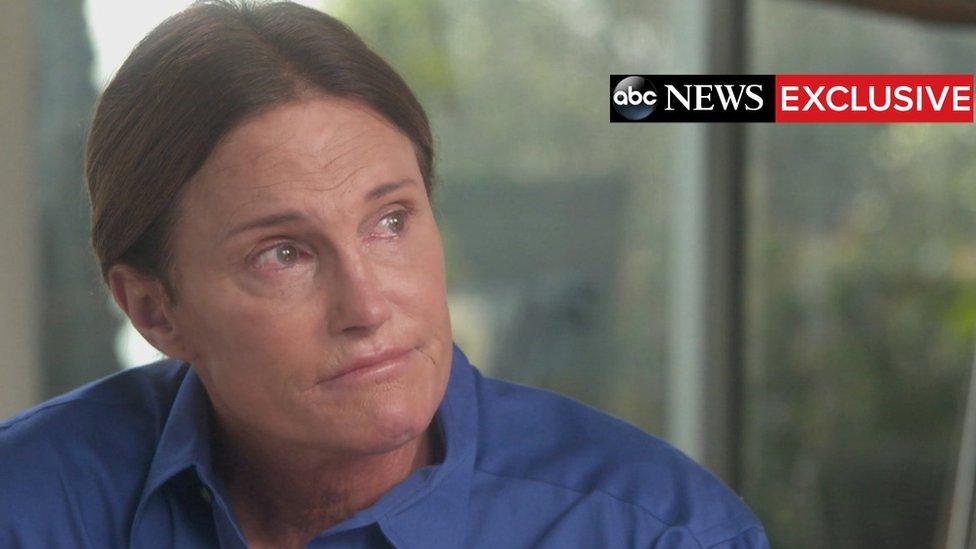What transgender people want you to know about pronouns
- Published

"For all intents and purposes, I am a woman," said Bruce Jenner. But most articles about the ABC interview use male pronouns.
As he has not said that he would like to use a new name or pronoun, it is considered respectful to use the words he and him until Jenner says otherwise.
Advisory groups like the Gay & Lesbian Alliance Against Defamation (GLAAD) in the US say you should "use the name and pronoun a transgender person prefers".
"Whenever possible, ask transgender people which pronoun they would like you to use," says GLAAD.
If you are affected by issues surrounding gender, BBC Advice has links and more information.
Jack says he can remember saying from a very young age he wanted to be a boy.
The moment when people started to talk about him using male pronouns was important, the 19-year-old tells Newsbeat.
"I was just so happy," he says.
"All the kids and all the staff just got on board with it. It's hard at first to do but they did it because they accepted me," he says.
"It was the best feeling in the world."
Kendall Jenner posts a picture on Instagram of her writing she wants to be like her dad., external
Not everyone in 18-year-old Harry's life uses male pronouns yet.
"It's nearly a year since I've come out to my family," he tells Newsbeat.
"Generally, when I'm back at home from university, my mum will try her best to use Harry and male pronouns.
"She does slip up regularly, but I'm very sympathetic with that. I'll give her the time she needs. I know she's had quite a hard time dealing with it.
"My brother and my dad, they'll still refer to me by my birth name and as she. It's just a time thing. It's very hard for people to get used to."
Like Jack, it was as a teenager that Harry found out what transgender meant, and realised that the term applied to him when he was watching TV with a friend.
"She was the first person I told to use a different name and actually it's a different name to the one I'm using now," he says.
"Originally it was Luke and then I felt that didn't quite fit so then I changed it to Harry."
Harry says it's important for people to remember that someone may not want to be referred to as he or she.
"There's a number of different pronouns people can use and identify with, a whole spectrum," he explains.
"For a long time I was using gender neutral pronouns.
"I was using they and their instead of male or female, until I was comfortable.
"There was a long period where I mis-gendered myself because although I felt I was male. I lived with myself for 18 years as she. It's very difficult to make that switch."
Jack says he doesn't hate his birth name. "It was part of me, but I prefer the name Jack.
"I would have been fine with keeping the name, I only had to change it because the world thinks [my old name] is a girl's name."
Harry however, says he will sometimes "cringe" if he hears his birth name.
"It ruins my whole day because I'm trying so hard to pass as male and live my life as Harry.
"With my family I'm much more sympathetic to them using it because they've known me for 18 years."
While the advice is generally to ask which pronoun and name you should use, both Harry and Jack say some other questions may be inappropriate to ask a transgender person.
"I think people worry about being too politically correct sometimes," says Jack. "There are no rules for it - every individual experience is different."
Both agree that while they will talk more openly with close friends, if they know someone less well then they will only answer "appropriate" questions and people should be "respectful".
"If you wouldn't feel comfortable discussing your private parts," says Jack. "Don't expect someone else to because that's not fair."
"There are going to be mistakes and you've just got to apologise and move on," says Harry.
Follow @BBCNewsbeat, external on Twitter, BBCNewsbeat, external on Instagram, Radio1Newsbeat, external on YouTube and you can now follow BBC_Newsbeat on Snapchat